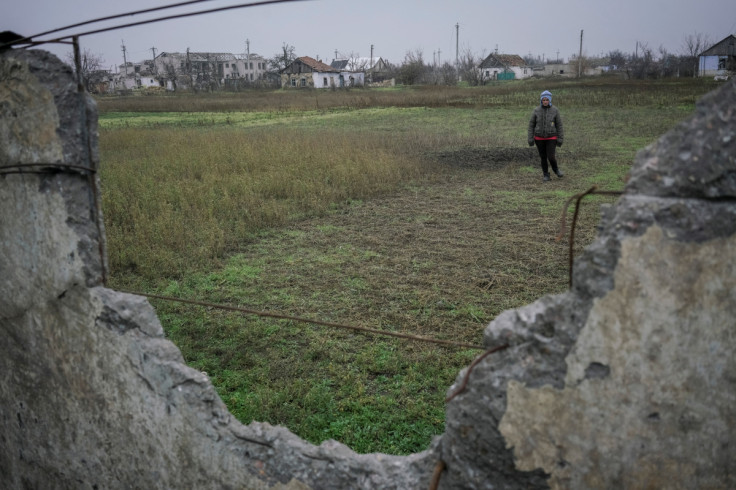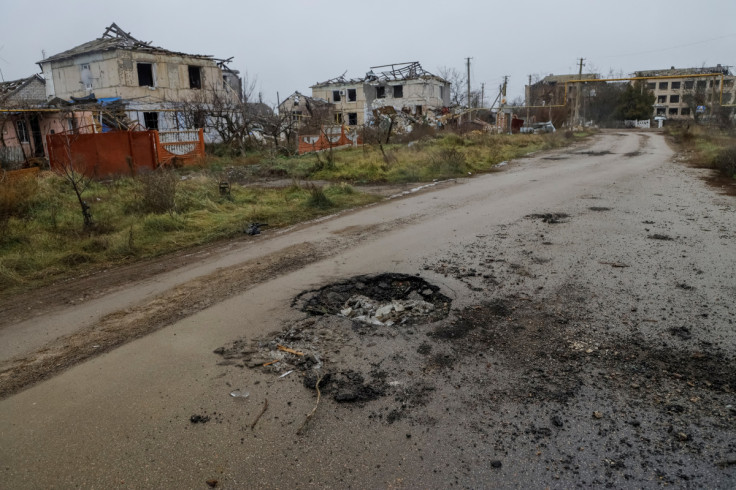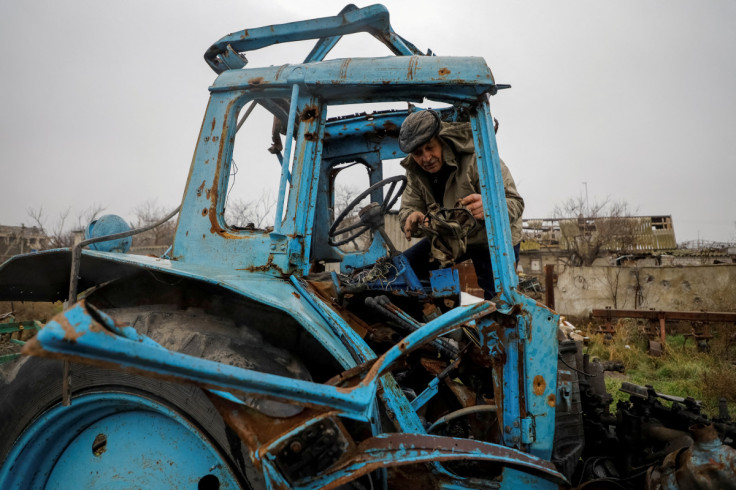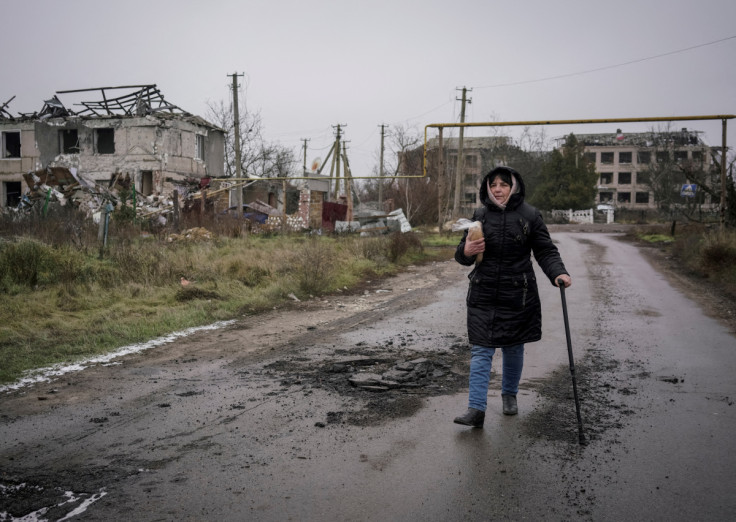Ukrainians Brave Return To Former Frontline Village After Russian Retreat

When Russian forces advanced in the middle of last winter, the villagers of Posad-Pokrovske began to flee, joining compatriots from across the southern Ukrainian province of Kherson in a mass westward exodus.
Over the past month, since Ukraine's army recaptured the provincial capital and surrounding territory, they have been slowly returning to homes damaged or reduced to rubble by Russian shells, set in a landscape of shattered trees, downed telegraph poles and spent munitions.
"Some come, repair (their house) and leave. The ones that still have something to save, they save it," said 31-year-old returnee Liudmyla Hupalo.
Russian forces took control of Kherson city and surrounding areas in late February and early March, and Posad-Pokrovske - with a prewar population of over 3,000 - ended up on the war's front line.
Hupalo estimates that, so far, between 170 and 180 have returned.
"The ones that have nothing to save and have no place to live, they don't come back," she told Reuters.
"My parents' house is gone, completely ruined. There is some roof left above my house, but it is still scary to look at."
Nearby, under a caved-in ceiling, local farmer Vasyk Oliinyk fired up one of a consignment of wood stoves transported in to help villagers cope with the bitter cold.
"It was a nice and beautiful village," he later recalled, standing beside the charred remains of his tractor, blown up during the occupation.
"They (the Russians) shot it with cluster munitions... I have no idea what to do, what to begin with. You see with your own eyes - everything is destroyed. I don't know how you could manage land without equipment."
For his wife Oksana, the stove means progress of a sort, though a return to normality remains a distant prospect.
"One could cook porridge or anything most necessary on it. One could warm up water on it, but there is no water," she said.
Meanwhile, Liudmyla Hupalo's father Oleksandr surveys the uninhabitable wreckage of his property.
"The girls used to put make up on here. The wife liked to sit here in her room," he said. "People used to say we have a small house. It was enough for us."
(Writing by John Stonestreet: editing by Mike Collett-White)



© Copyright Thomson Reuters 2025. All rights reserved.





















